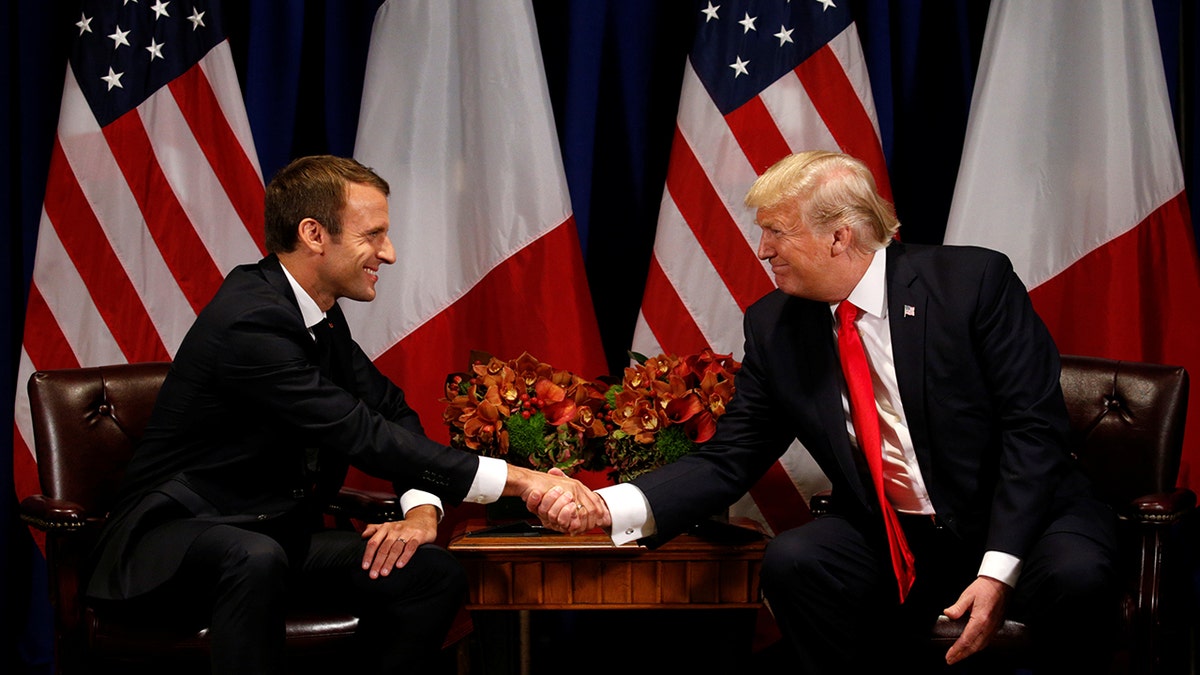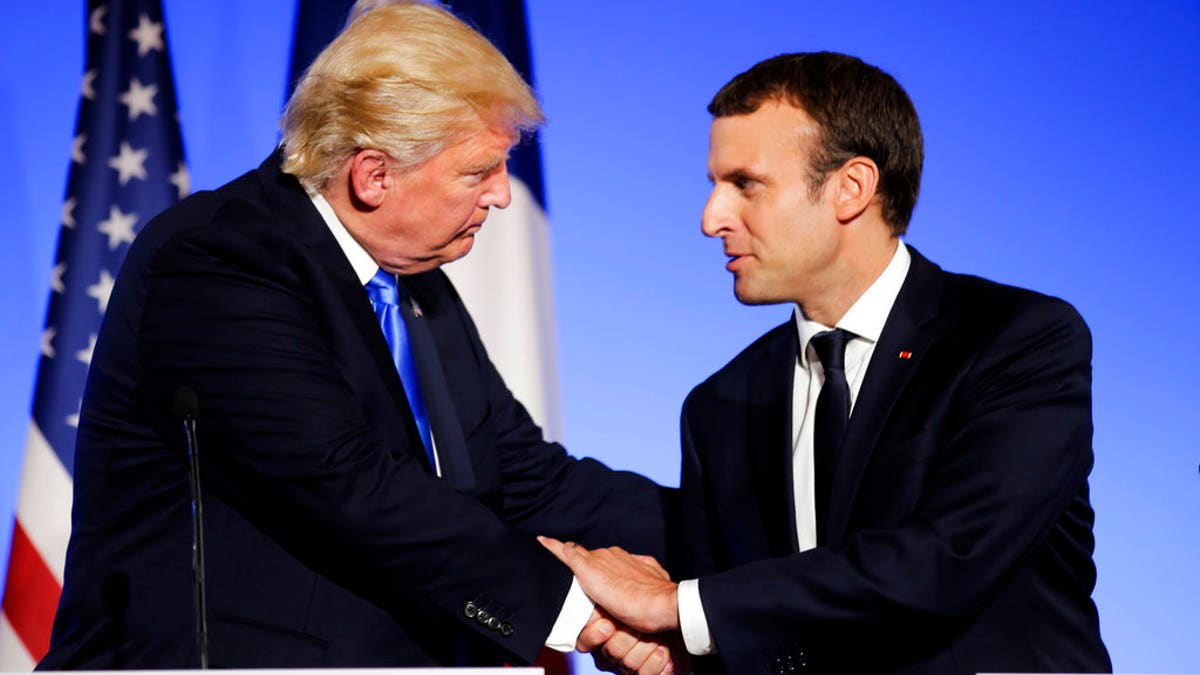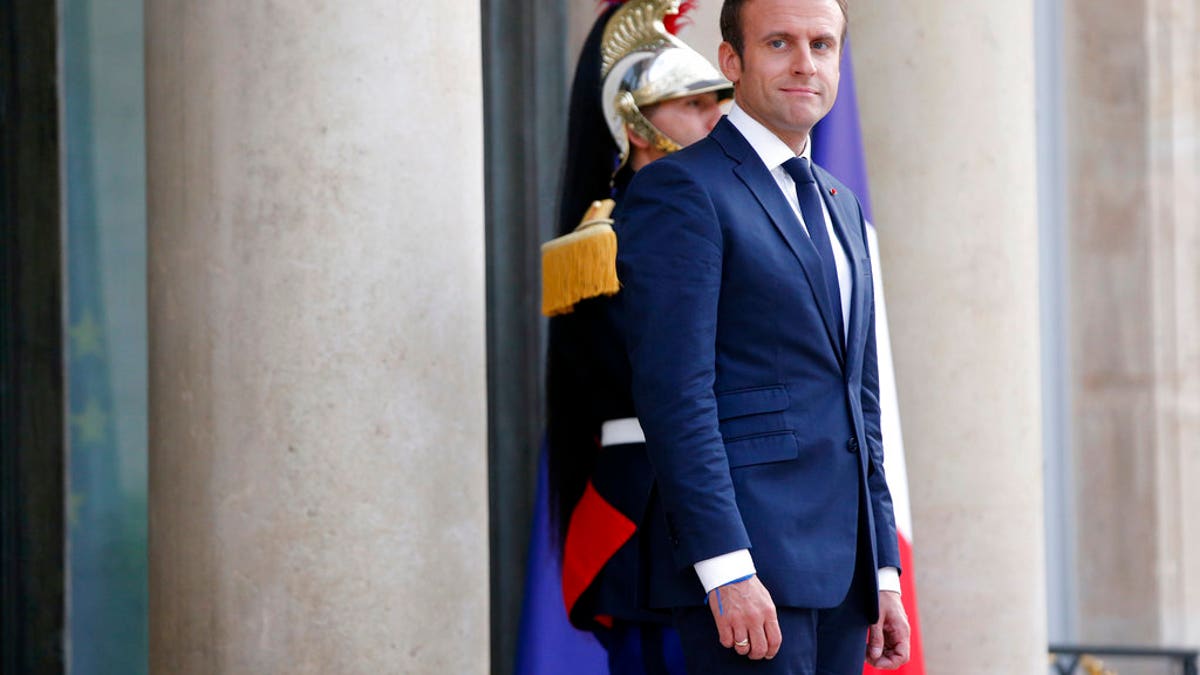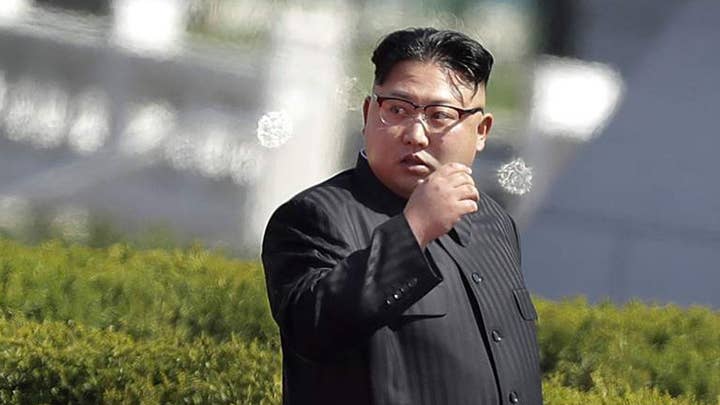
President Donald Trump meeting with French President Emmanuel Macron in New York. (REUTERS/Kevin Lamarque)
The presidents of the United States and France both addressed the United Nations General Assembly for the first time on Tuesday, and both took divergent views when it came to the 2015 nuclear agreement reached between five U.N. permanent members and Germany.
While President Donald Trump devoted much of his Assembly address to condoning the Obama-era deal, referring to it as an “embarrassment to the United States,” Emmanuel Macron defended France’s role in it, doubling down on both the U.N. floor and again in a media address afterwards.
“I can understand President Trump thinks this deal is not perfect,” he said, adding that the uncertainty should instead signal them to work together.

President Donald Trump, left, shaking hands with French President Emmanuel Macron at the Elysee Palace in Paris, in July. (AP Photo/Markus Schreiber)
Macron advocated that further sanctions should certainly be ordered if Iran does not comply with the terms, but feared tossing out the current agreement would leave the world “with nothing” to stop the Middle East nation from developing a dangerous nuclear arsenal.
“We know what nothing does,” he said. “Nothing is what we have with North Korea.”
Macron was met with some skepticism from various world reporters, who pinned him for his “friendship” with Trump, of which he remained unflustered.
On the issue of climate change, Macron remained firm that it was a “moral, economic and social necessity” and expressed a desire to continue talking to Trump in the hopes he “comes back” to the Paris Agreement.
The two western countries also appear to have contrasting stances with regards to the Kurdish referendum slated to take place on Friday, in which the semiautonomous region of Iraq intends to vote on whether it should totally diverge from Baghdad’s reign. The U.S. State Department has remained staunch in its insistence that the vote should not go ahead, joining most of the international community in condemning its timing. The State Department believes the vote threatens the security situation inside the fragile country.
Nonetheless, Macron noted that France would not oppose the forthcoming vote.

French President Emmanuel Macron in July. (AP Photo/Thibault Camus)
“The Kurds and France have a longstanding relationship. France has lots of respect for people who defend their values and their history,” he said. “If this referendum is held, I hope it leads to the proper representation of Kurds in government and within the framework of the (Iraqi) Constitution.”
He also called for Kurdish President Masoud Barzani to “transform the referendum” into one that would seek greater protections for all minorities in the embattled nation.
But despite the prominent differences of view between France and America on policy stances, Macron insisted that the U.S. remains an “historic partner, now and in the future.”





















